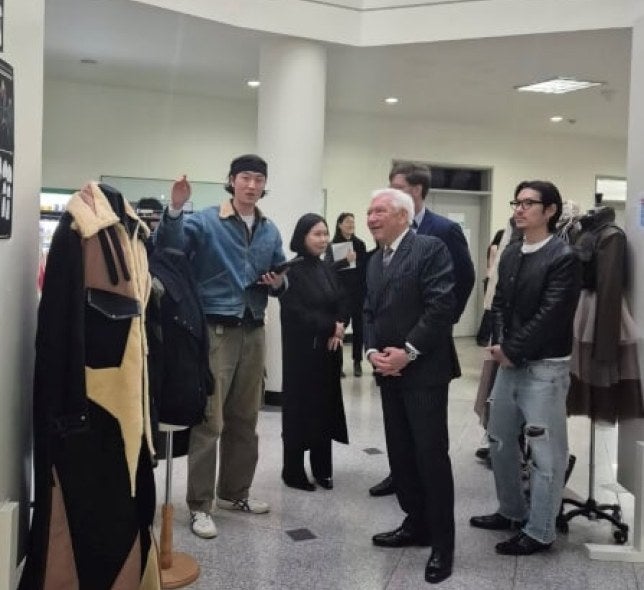Sustainability is critically important in fashion today. According to a recent study of consumers by consulting firm Bain & Company, “fashion brands that proactively design sustainability into their strategy and operations will cement their relevance and capture a windfall of unmet demand, now and into the future.”
That is a big promise, and one that has fashion brands embracing sustainability to different degrees and in different ways. Still, there is unity in one thing—an urgent need to develop talent that is educated and prepared to bring real knowledge and understanding of the intricacies of sustainability to a wide range of roles in fashion, from design to production to customer experience to supply chain and more.
LIM College is preparing students to be future sustainability-focused talent and potential leaders in fashion organizations. The College is the only one of its kind to require every Fashion Merchandising and Business of Fashion undergraduate student to complete a sustainability course, Sustainability and the Future of Fashion.
The course, which includes the history of sustainability, systems thinking, fashion supply chain mapping, and sustainable and circular design strategies, was created by Andrea Kennedy, an adjunct professor and Vice President of Sustainability at Material Exchange.
Professor Kennedy has 25 years of experience in global sustainable sourcing, design, and education. In 2016, she advocated for LIM College to develop sustainability coursework as she understood the growing need for fashion industry professionals to have critical sustainability knowledge, regardless of what their future roles would be. Due to LIM’s future-facing model, she received the green light to develop the course quickly, and it was offered as an elective the following semester. Within one year, the course became required.
Now, Sustainability and the Future of Fashion is just one of several sustainability courses offered at LIM, including Storytelling for Sustainability, Advanced Sustainable Practices in Fashion, and more. In 2019, the College underscored its commitment to being a leader in sustainability by developing the first minor in Sustainability available at a fashion-focused college.
Part of the Sustainability minor is the Advanced Sustainable Practices in Fashion course. It places students into “Green Teams” that work with real world fashion brands on their sustainability initiatives.
Students investigate and calculate the environmental impacts of a best-selling product for the brands. They create a report and propose changes based on their assessment. They then create sustainable action plans that focus on social impacts, circularity and more, with an emphasis on reducing the product’s footprint.
Over the course of the semester, students become adept in world-viewing, responsible sourcing, change agency, and become familiar with current carbon-measurement platforms so they are ready to join teams at fashion brands and related businesses.
“These projects are a win-win. Brands have new challenges that need the fresh thinking our students can offer. At the same time, the students have the invaluable opportunity to work on important industry sustainability projects, receive genuine professional feedback, and network with industry professionals,” said Professor Kennedy.
Several brands have partnered with LIM to have Green Teams work with them on sustainability initiatives and problem solving. Two of those brands are Free People and PrAna Living.
PrAna Living, a division of Columbia Sportswear, is a sustainable travel, adventure and fashion yoga brand that has twice worked with LIM Green Teams. In one case, Rachel Lincoln, Director of Sustainability at PrAna, invited the student team to help the company with environmental footprinting for one of the brand’s legging styles.
The students were provided access to comprehensive information and were tasked with exploring every step, or tier, in the supply chain for the product from fabric origins to dye houses, to production facilities, shipping to the brand, shipping to the consumer, and every step in the process. The goal for Lincoln and PrAna was to identify all sources so that each supplier could be assessed in relation to PrAna’s sustainability commitments and the work toward its aggressive sustainability goals.
Another LIM Green Team worked with PrAna to reduce plastics in packaging. Students developed a wide variety of innovative approaches to the task, and Lincoln was impressed that the systems thinking education students received at LIM helped them create solutions that reflected a keen understanding of factors such as packaging material cost, availability, impact on project timing, and other elements that must be considered in a holistic view of such a challenge.



